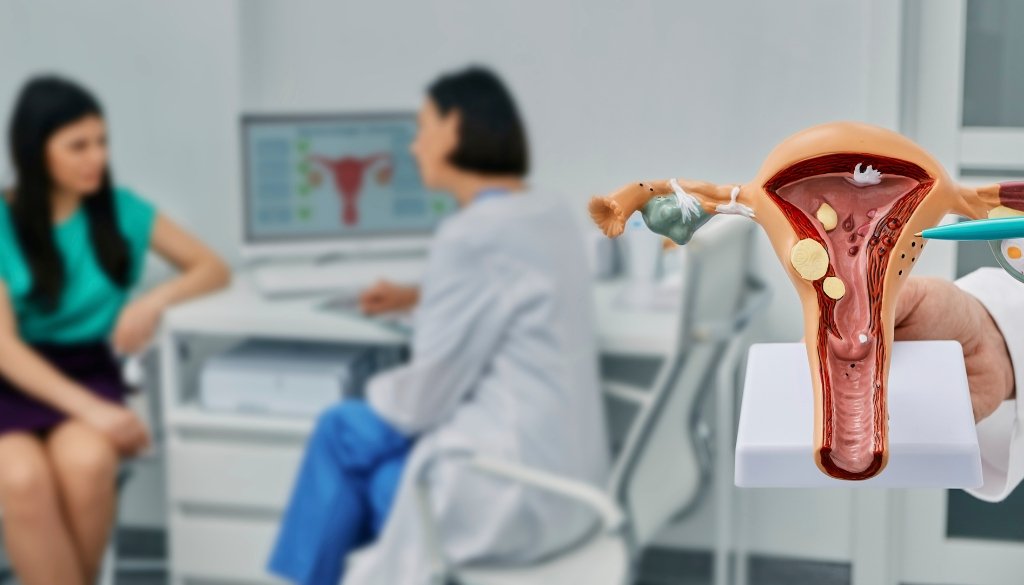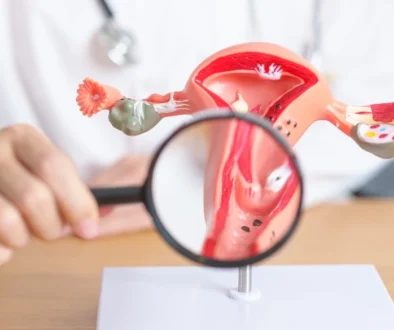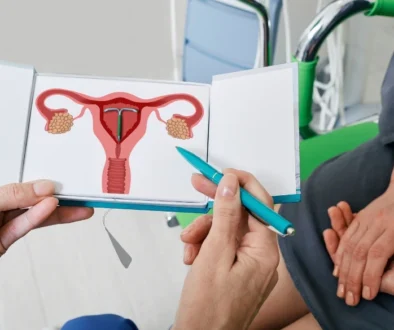When Period Pain Isn’t Just “Normal”: Understanding and Treating Endometriosis
Many women grow up believing that painful periods are just a part of life. But what if that pain is a sign of something more serious? Endometriosis is a chronic and also sometimes underestimated condition which impacts millions of females, many remain undiagnosed for decades. Understanding the signs, causes, and available treatments can empower you to take control of your health.
If you’re experiencing severe menstrual pain, chronic pelvic discomfort, or unexplained fertility issues, it might be time to consider an endometriosis diagnosis and explore your options for endometriosis treatment in Sharjah.
What Is Endometriosis?
Endometriosis is when the tissue that is like the lining of the uterus (known as the endometrium) develops in a location other than the uterus. This tissue acts like the normal uterine lining-it gets thick, breaks down, and sheds every menstrual cycle. However, because it’s located outside the uterus, the blood and tissue cannot exit the body, leading to inflammation, scarring, and pain.
It can adhere to the ovaries, fallopian tubes, bladder, and intestines. Over time, this can cause the formation of endometriosis cysts known as endometriomas and may contribute to fertility problems.

Common Signs of Endometriosis
Recognizing the signs of endometriosis can be challenging because symptoms often overlap with other conditions. However, if you are experiencing any of the following consistently, it’s essential to speak with a healthcare professional:
- Severe menstrual cramps that don’t respond well to pain medication
- Chronic pelvic pain
- Pain during intercourse
- Pain with defecation or urination, particularly with menses
- Heavy or irregular periods
- Fatigue, bloating, or nausea
- Infertility
Some women with endometriosis may not have any noticeable symptoms until they try to conceive or undergo pelvic imaging.
What Is the Reason for Endometriosis?
While the exact reason for endometriosis remains unclear, several factors may contribute to its development:
- Retrograde menstruation: Menstrual blood travels backward down the fallopian tubes and into the pelvic cavity.
- Hormonal imbalances: One of the major hormones responsible for stimulating the growth of endometrial tissue is estrogen.
- Immune system dysfunction: Tissue that resembles endometrial tissue built up in the peritoneum may not be removed by a compromised immune system.
- Genetic predisposition: Individuals with a family history of endometriosis are more likely to acquire the condition.
- Surgical spread: In some cases, surgical procedures such as a C-section may inadvertently transfer endometrial tissue outside the uterus.
Cysts and Endometriosis: What Are Endometriomas?
The growth of ovarian cysts called endometriomas is one of the more dangerous side effects of endometriosis. These cysts are filled with thick, old blood, often called “chocolate cysts.”
Cysts and endometriosis are closely linked, as endometriomas can interfere with ovarian function and fertility. If left untreated, they may grow, rupture, or cause damage to healthy ovarian tissue.

Getting the Right Diagnosis
A proper endometriosis diagnosis is crucial for effective treatment. Diagnosis often begins with a detailed history and pelvic exam. Your doctor may also use imaging tests like ultrasound or MRI to identify endometriosis cysts or other abnormalities.
The only surefire way to diagnose endometriosis, however, is with a laparoscopy, which is a minimally invasive surgery in which the physician can see and in some cases, biopsy the lesions of the endometrium.
Endometriosis Treatment Options
There is no current treatment for endometriosis, but numerous endometriosis treatments can control the condition and enhance the quality of life. Treatment depends on factors such as age, symptom severity, and whether fertility preservation is a concern.
1. Medication & Hormonal Therapy
- Pain relievers like NSAIDs help manage discomfort.
- Hormonal treatments suppress the menstrual cycle to reduce inflammation and slow the growth of endometrial tissue.
- Birth control pills, progestins, and GnRH agonists are commonly used forms of endometriosis therapy.
2. Surgical Intervention
When medication isn’t effective or if fertility is a concern, endometriosis surgery may be necessary. During laparoscopy, the surgeon removes or destroys endometrial implants and endometriomas.
Surgery can relieve pain and may improve fertility outcomes. In severe cases, more extensive procedures like hysterectomy may be considered.
3. Lifestyle and Supportive Therapies
A comprehensive endometriosis therapy plan may include dietary adjustments, stress management, and physical therapy. Inflammation and general well-being can be reduced with a balanced diet and frequent exercise.
Why Early Treatment Matters
Ignoring endometriosis symptoms can lead to worsening pain, formation of scar tissue, and complications like infertility. Seeking endometriosis treatment early gives you access to therapies that can slow disease progression, protect reproductive health, and improve your everyday comfort.
At Lifeline Clinic Rolla, our gynecology team is committed to helping women receive timely diagnosis, compassionate care, and evidence-based treatment for endometriosis.

When to See a Doctor
If you’re experiencing persistent pelvic pain, painful periods, or difficulty getting pregnant, it’s time to talk to a professional. Our clinic offers personalized consultations, advanced imaging, and expert care to guide your endometriosis diagnosis and recovery journey.
Final Thoughts
Endometriosis isn’t just “bad cramps.” It’s a chronic condition that deserves understanding, attention, and medical care. Whether you’re dealing with unexplained pain, managing fertility issues, or seeking options like endometriosis surgery, you’re not alone. Effective endometriosis treatment can restore your life balance and help you regain control of your health.
If you want reliable and compassionate endometriosis treatment in Sharjah, contact our expert team today. Relief is possible-and support is just a consultation away.





